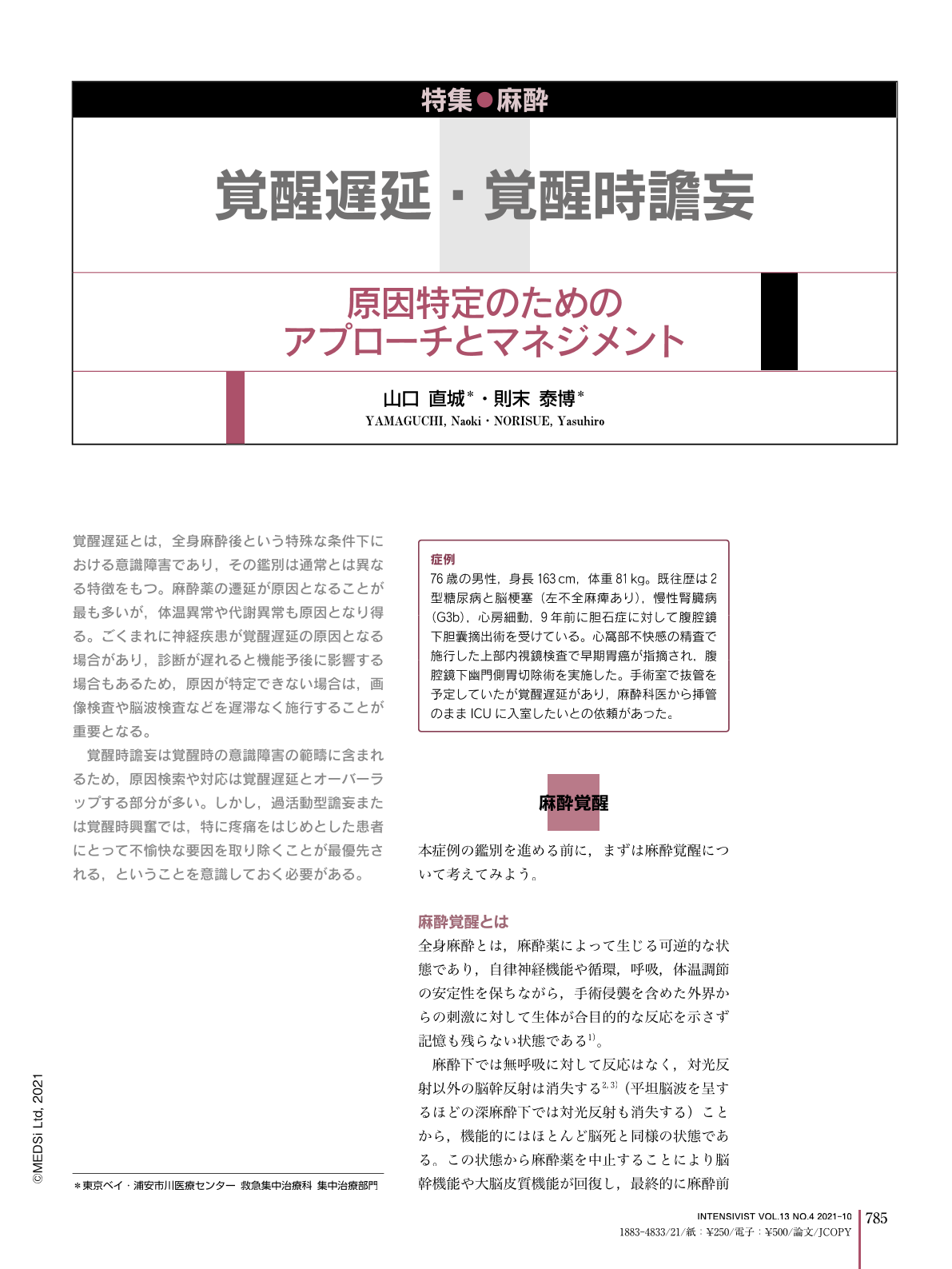Japanese
English
- 有料閲覧
- Abstract 文献概要
- 1ページ目 Look Inside
- 参考文献 Reference
- サイト内被引用 Cited by
覚醒遅延とは,全身麻酔後という特殊な条件下における意識障害であり,その鑑別は通常とは異なる特徴をもつ。麻酔薬の遷延が原因となることが最も多いが,体温異常や代謝異常も原因となり得る。ごくまれに神経疾患が覚醒遅延の原因となる場合があり,診断が遅れると機能予後に影響する場合もあるため,原因が特定できない場合は,画像検査や脳波検査などを遅滞なく施行することが重要となる。
覚醒時譫妄は覚醒時の意識障害の範疇に含まれるため,原因検索や対応は覚醒遅延とオーバーラップする部分が多い。しかし,過活動型譫妄または覚醒時興奮では,特に疼痛をはじめとした患者にとって不愉快な要因を取り除くことが最優先される,ということを意識しておく必要がある。
Delayed emergence is defined as impaired consciousness after general anesthesia. Prolonged anesthetic effects are the most common cause of delayed emergence, but temperature and metabolic derangements can also cause this condition. Neurologic causes of delayed emergence are rare, but a delay in the diagnosis may lead to a poor functional prognosis. If the cause is unknown, image inspection and electroencephalography must be performed without delay. Emergence delirium belongs to the category of impaired consciousness after general anesthesia, so it shares similar causes with delayed emergence. In patients with hyperactive emergence delirium, factors such as acute pain due to surgery should be removed immediately.

Copyright © 2021, MEDICAL SCIENCES INTERNATIONAL, LTD. All rights reserved.


